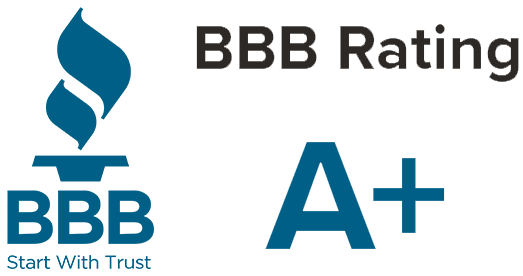Navigating the New Regulatory Landscape: What the February 19, 2025, Executive Order Means for Small Businesses and Federal Contractors
By TED ROSE, ROSE FINANCIAL SOLUTIONS
On February 19, 2025, President Trump issued an executive order titled Ensuring Lawful Governance and Implementing the President's 'Department of Government Efficiency' Regulatory Initiative. This order signals a significant shift in federal regulatory oversight, particularly for small businesses and federal contractors. While the immediate effects remain uncertain, the order’s language suggests a strong emphasis on reducing compliance burdens, fostering private enterprise, and stimulating economic development.

Key Takeaways from the Executive Order
1.Regulatory Review Mandate – The order requires agency heads, in coordination with DOGE (Department of Government Efficiency) Team Leads and the Office of Management and Budget (OMB), to review all existing regulations within 60 days. The goal? To ensure alignment with legal and administrative priorities.
2. Focus on Small Businesses and Private Enterprise – The order specifically directs agencies to identify and potentially rescind regulations that:
- Impose undue burdens on small businesses and impede private enterprise and entrepreneurship.
- Significantly and unjustifiably impede technological innovation, economic development, and energy production.
- Hinder infrastructure development, research and development, inflation reduction, and other national interest priorities.
3. DOGE's Expanding Role – Originally established via executive order on January 20, 2025, DOGE Team Leads are now tasked with identifying regulatory barriers that may disproportionately affect small businesses. Their role underscores the administration’s commitment to streamlining regulations and fostering a more business-friendly environment.
Potential Impact on Federal Contractors and Small Businesses
Pros
- Reduced Compliance Costs – Small business contractors often struggle with complex reporting requirements and regulatory mandates. This order could lead to a rollback of burdensome rules, translating to lower costs and fewer administrative headaches.
- Increased Market Opportunities – By removing barriers to private enterprise and innovation, the regulatory landscape may become more favorable for small businesses looking to enter or expand within the federal marketplace.
- Flexibility in Workforce and Operations – If the order results in the elimination of certain labor or DEI-related compliance mandates, businesses may gain greater operational flexibility.
Cons
- Regulatory Uncertainty – The next 60 days will determine which regulations are identified for review and potential elimination. This uncertainty could make it difficult for businesses to plan effectively.
- Potential Backlash from Advocacy Groups – Environmental and labor organizations may push back against regulatory rollbacks, leading to legal challenges or policy reversals in the future.
- Industry-Specific Disruptions – While some businesses may benefit from deregulation, others could face new competitive pressures as market barriers shift.
What Comes Next?
- By mid-April 2025, agencies must report their findings and proposed regulatory changes. Until then, federal contractors and small businesses should...
Read more in the ROSE Community.
Want to read the full article?
📢 Join ROSE Business Forum & Events to gain exclusive access to industry insights, discussions, and networking opportunities tailored for GovCons, Nonprofits, and Growing Businesses.

Ted Rose
In 1994 Ted Rose founded Rose Financial Solutions (ROSE), the Premier U.S. Based Finance and Accounting Outsourcing Firm. In 2010, the Blackbook of Outsourcing named ROSE the #1 FAO firm in the world based on client satisfaction. As the president and CEO of ROSE, he provides executives with financial clarity. Ted has also acted as the CFO for a number of growth companies and assisted with various rounds of financing and M&A transactions.
Share this article:
Visit Us On:




